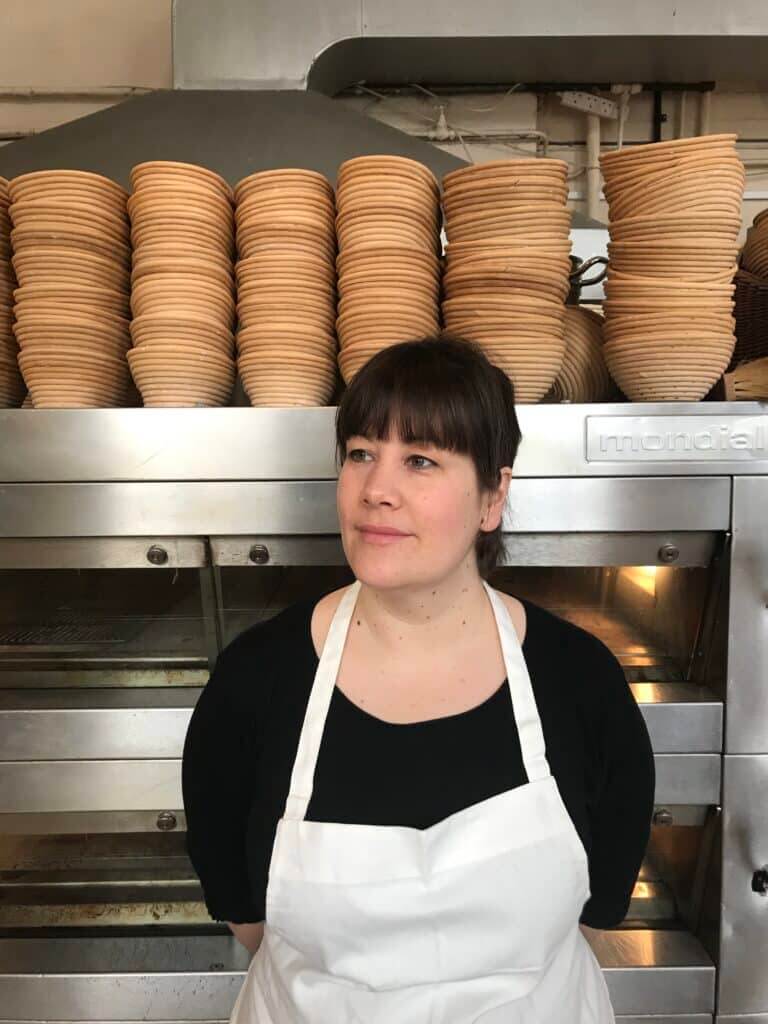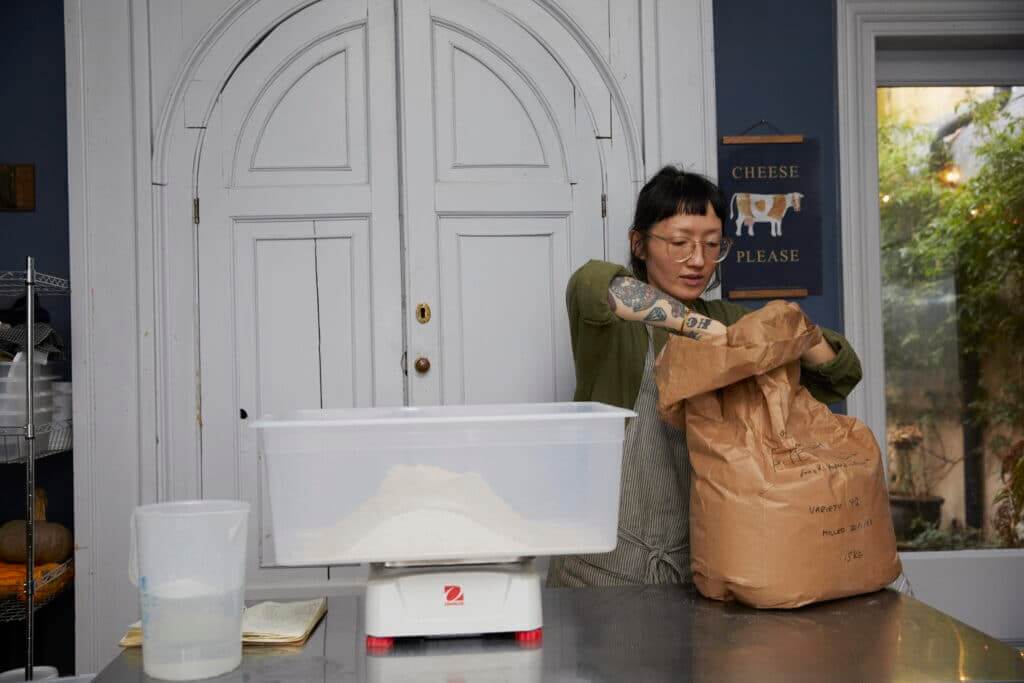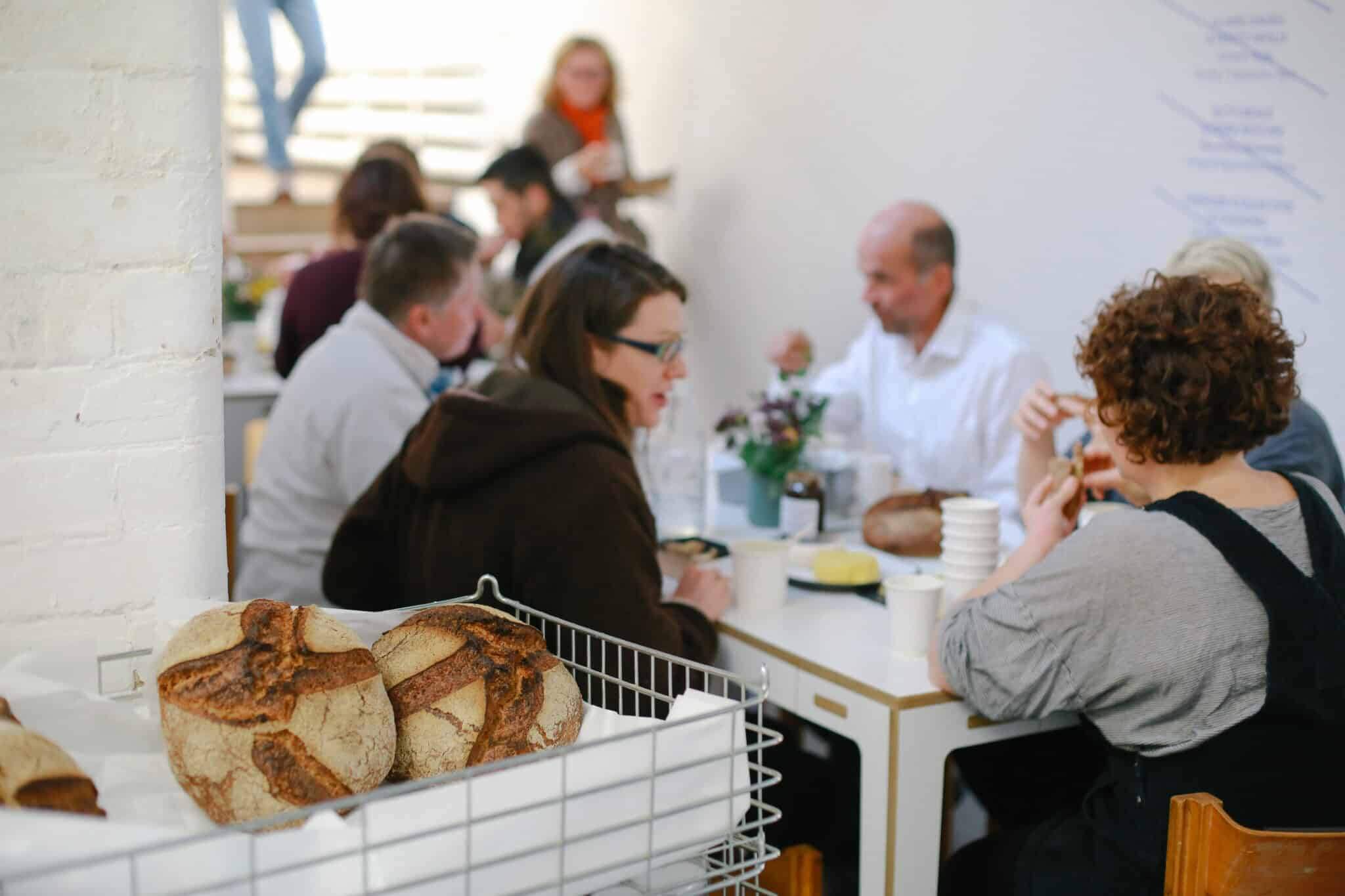Whether radically wholegrain, experimenting with population wheats or challenging subsidies, bakers and millers are fighting for food security and flavour one loaf at a time.
Speaking at a recent talk during first Food Diversity Day, baker Kimberley Bell described how she set up the Small Food Bakery to provide good food for her local community while challenging the ‘Big Food Industry’. At each step she asked: “What does it mean to be a baker pushing against this system?”
Bell went in search of a sustainable wheat that did not rely on mono-cropping and found Martin Wolfe at Wakelyn’s farm. At the time, few bakers would try his organic population wheat, where multiple varieties of wheat are grown in one field, and which has since become known as YQ.
A population wheat, unlike a traditional variety, is much more varied because plants are allowed to grow and reproduce on organic farms by natural selection, so that those best adapted to changing conditions survive.
This ability to adapt is particularly important with our changing climate, however a diversity of wheats also brings a diversity of flours. Bell explained to Wolfe that some bakers preferred the predictability of commodity white flour, but she was keen to support the ecological diversity behind YQ and agreed to bake with it.

Their collaboration blossomed and led to Bell establishing the UK Grain Lab, a network of farmers, millers and bakers who challenge the use of commodity flour. Wing Mon Cheung, who runs Cereal Bakery in Bath, is one of those bakers.
“I have to see that I am supporting a farmer in working in an ecological way and the miller is being paid the right amount for their work and then we’re able to sell that end product for a fair price as well,” said Cheung. “It does create this great feeling to know exactly who the people are that you are working with.”
Cheung’s bakery is 100 per cent wholegrain because, as she put it: “There is more flavour, more nutrition and, to use that word sustainable, it is more sustainable because we are not wasting any of that precious grain.”
This is supported by research at Washington State University’s Bread Lab who found using the whole kernel produces 30 per cent more flour. This is significant when you are feeding a growing global population on a warming planet.

Fintan Keenan, a miller and farmer at Quartz Mølle in Denmark, said we need a diversity of grains for “flavour and disease resistance”. When he first moved to Denmark and tried heritage grains, “the flavour just exploded in my mouth…I was like, how come I’ve never come across this before?”
Cost is often an issue, particularly in the current crisis. Keenan suggested buying a bag of flour directly from a mill, if you can, to make cookies, pancakes or bread.
“Those people who have come to me and bought a bag of flour and went home and baked with it themselves, they are constantly returning because they have realised that this is something exceptional that you can’t get in a supermarket for 50p for a kilo.”
Regarding cost, Bell responded with a challenge: “We need to dispel this myth that the change we are advocating for in farming and in more connected, localised food systems will make it more expensive.
“What makes it expensive is that we receive no subsidy or support, and we are a grassroots movement doing things because we want to. I would love to see an economic study that proved that the amount of financial subsidy that gets chucked after this terrible food equates to the difference in price between ours and theirs.”
Real Bread Week takes place from 18-26 February. Find out how to get involved here.
Find and buy from your local sustainable grain network of bakers and millers via the UK Grain Lab.









I rely mostly on Doves Farm wholewheat flour, used in a Panasonic 255 bread-maker. Always 50 gm of DF white so it rises. [In case you ask, my wrists would not take hand kneading]. But the loaves are even better when I use a modest proportion of eg Tuxford Windmill Edgar wheat flour or some Spelt flour. So try this everyone, and increase the market for these wonderful flours.
Thanks for your flour tips, Denby! It’s always useful hearing what other bakers find works for them.
And no need to excuse using a breadmaker, we use one at home too. We make bread far more frequently that way, although I do still like kneading by hand when I have time.
I picked up a copy of Andrew Whitley’s ‘Bread Matters’ in a charity shop a few years ago and it completely changed my attitude. The quote that sticks in my mind is the description of bread made by the Chorleywood process as ‘the cheapest way to make water stand upright’. I already had a bread machine which I used now and then almost as a novelty. I have since worn out two machines and have bought bread from the supermarket only very rarely.
Living in London, it is quite difficult to source flour other than the stuff sold in supermarkets. Doves Farm, as referred to above, is usually the best on offer. I would appreciate a list of suppliers, especially those who don’t require you to buy a roomful at a time as long-term storage is always an issue for perishables.
I like that quote about the Chorleywood process!
Have you had a chance to look at the UK Grain Lab Website? That might have some leads on where you could source alternative flours. They have an interactvie map of alternative grain networks in the UK: http://www.bicga.org.uk/grain_map.php
Good luck!
Great tips from Anna below, Shipton Mill are also worth checking out for flour.
I’m on it! Thank you both.